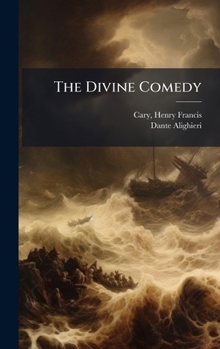The Divine Comedy
"The Divine Comedy" by Dante Alighieri, translated by Henry Francis Cary, is a cornerstone of world literature. This epic poem, written in the early 14th century, takes the reader on a profound journey through the afterlife, encompassing Inferno, Purgatorio, and Paradiso. Dante's vivid and allegorical depiction of Hell, Purgatory, and Heaven remains strikingly powerful and imaginative.
Cary's translation, first published in the early 19th century, played a significant role in introducing Dante to a wider English-speaking audience. "The Divine Comedy" is not only a masterpiece of poetry but also a profound exploration of morality, theology, and the human condition. Its enduring themes continue to resonate, making it essential reading for anyone interested in classical literature and the history of ideas.
This work has been selected by scholars as being culturally important, and is part of the knowledge base of civilization as we know it. This work was reproduced from the original artifact, and remains as true to the original work as possible. Therefore, you will see the original copyright references, library stamps (as most of these works have been housed in our most important libraries around the world), and other notations in the work.
This work is in the public domain in the United States of America, and possibly other nations. Within the United States, you may freely copy and distribute this work, as no entity (individual or corporate) has a copyright on the body of the work.
As a reproduction of a historical artifact, this work may contain missing or blurred pages, poor pictures, errant marks, etc. Scholars believe, and we concur, that this work is important enough to be preserved, reproduced, and made generally available to the public. We appreciate your support of the preservation process, and thank you for being an important part of keeping this knowledge alive and relevant.





